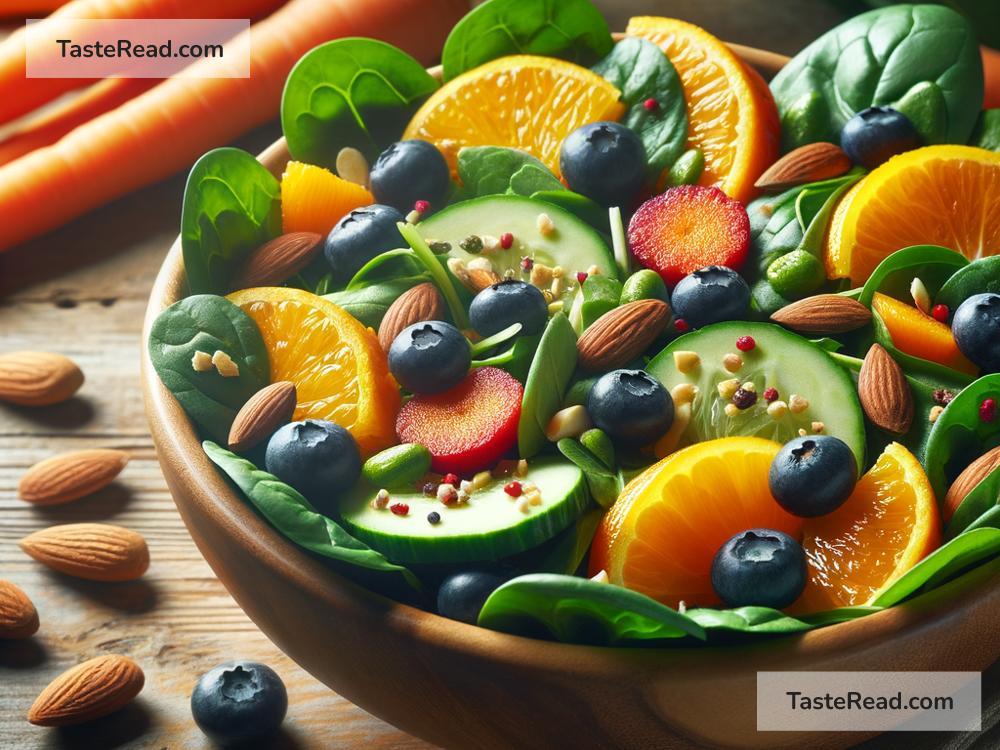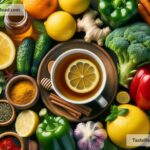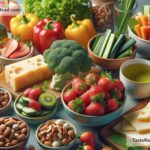Foods That Reduce the Risk of Cataracts: Stay Healthy, See Clearly!
Cataracts are a common eye problem that many people experience as they age. They make your vision cloudy, like looking through a frosty window, and can eventually lead to blindness if left untreated. While cataracts can’t always be prevented entirely, studies have shown that your diet plays a big role in reducing the risk. By eating certain foods regularly, you can protect your eyes and keep your vision sharper for longer.
Here’s a guide to foods that can help guard against cataracts, explained in simple and clear language.
What Are Cataracts?
Before diving into foods, it’s important to understand cataracts. A cataract forms when the lens of your eye becomes cloudy, reducing your ability to see clearly. The lens is normally clear, and it focuses light onto the retina, helping you see. But over time, factors like aging, UV light exposure, smoking, or a poor diet can damage your lens.
The good news is that eating the right foods can strengthen your eye health and lower your chances of developing cataracts.
Nutrients That Help Prevent Cataracts
Certain nutrients have been shown to support eye health and protect against cataracts. Here are the key ones:
-
Antioxidants: These help fight free radicals—harmful molecules that can damage your body, including your eyes.
-
Vitamin C: This vitamin protects your eye lens from oxidative stress and lowers the risk of developing cataracts.
-
Vitamin E: Another powerful antioxidant that helps protect eye cells from damage.
-
Lutein and Zeaxanthin: These are plant-based nutrients that act like natural sunglasses, filtering out harmful blue light and protecting your eye lens.
-
Omega-3 Fatty Acids: Found in certain fats, these maintain overall eye health.
-
Zinc: Zinc helps your body absorb vitamin A, which is essential for good eyesight.
Foods That Reduce Cataract Risk
Now let’s look at specific foods packed with these eye-friendly nutrients:
1. Leafy Greens
Spinach, kale, and collard greens are powerhouse foods for your eyes. They are rich in lutein and zeaxanthin, two nutrients that protect against cataracts and age-related eye problems. Just one serving of leafy greens per day can be enough to boost your eye health.
2. Carrots
Carrots are famous for their link to good vision. They contain beta-carotene, which converts to vitamin A in your body. Vitamin A is essential for keeping your eyes healthy and reducing oxidative damage that leads to cataracts.
3. Oranges and Citrus Fruits
Oranges, lemons, and grapefruits are full of vitamin C, which protects your eyes from free radical damage. Just one orange a day gives you a big boost of vitamin C, helping your eyes stay strong as you age.
4. Eggs
Eggs are a simple, affordable food that are great for eye health. The yolks contain lutein, zeaxanthin, and zinc, all of which help reduce the risk of cataracts. Plus, they’re easy to add to your meals—whether scrambled, boiled, or cooked in a healthy omelet.
5. Fish
Salmon, mackerel, and sardines are excellent sources of omega-3 fatty acids. These fats are important for overall eye health and can lower your risk of cataracts. Aim to eat fatty fish twice a week for maximum benefits.
6. Sweet Potatoes
Like carrots, sweet potatoes are rich in beta-carotene, giving them their orange color. This nutrient is vital for protecting your vision. If you want a nutrient-packed side dish, baked sweet potatoes are both tasty and eye-friendly.
7. Nuts and Seeds
Almonds, sunflower seeds, and hazelnuts are packed with vitamin E, which protects your eye cells from damage. They are easy to snack on or to sprinkle into meals for added crunch.
8. Tomatoes
Tomatoes contain lycopene, a nutrient that shields your eyes against UV damage. Lycopene, along with vitamin C present in tomatoes, makes them a great food choice for eye health.
9. Whole Grains
Switching to whole grains like quinoa, brown rice, and oats can help your eyes. Whole grains have a lower glycemic index, which reduces the risk of age-related vision issues, including cataracts.
10. Blueberries
Blueberries are rich in antioxidants, including vitamin C and anthocyanins, which protect your eyes from oxidative stress. Grab a handful of blueberries as a snack or add them to smoothies for an eye-boosting treat.
Tips for a Cataract-Protecting Diet
-
Eat a variety of colorful foods: Brightly colored fruits and vegetables are often packed with eye-friendly nutrients. Each color represents different antioxidants, so mix and match your plate.
-
Stay hydrated: Drinking enough water helps keep your body and your eyes healthy.
-
Limit junk food: Fried foods, sugary treats, and unhealthy fats can increase inflammation and promote cataract development.
-
Be consistent: Include these nutrient-rich foods in your regular diet to truly lower your risk of cataracts.
Final Thoughts
Your diet has a big impact on your eye health, and eating the right foods can make a real difference in preventing cataracts. By adding leafy greens, carrots, eggs, citrus fruits, fish, and more to your meals, you’ll give your eyes the nutrients they need to stay healthy and clear. Small changes in your diet can lead to big benefits for your vision down the road.
Start today and say “yes” to foods that protect your eyes—because clear vision is something worth protecting!


